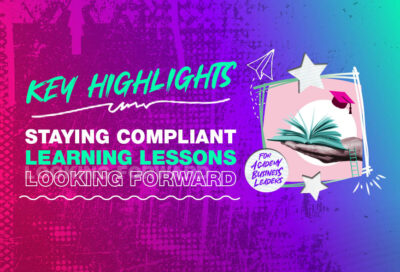Carbon Reporting
Most organisations are at least aware of carbon reporting now. For some academies, they may be racing forward on their ESG journey. But for others, they may only be at the start. A big part of ESG involves having a Net Zero target alongside a decarbonisation plan.
However, you can’t manage what you can’t measure. So, it’s key to start with a carbon inventory first. The emissions an organisation is responsible for can be split into three ‘scopes’:
- Scope 1 – direct emissions within a company’s control e.g. company vehicles
- Scope 2 – indirect emissions from purchased electricity from a supplier
- Scope 3 – all other emissions not in a company’s direct control e.g. business travel, purchased goods and services
Having a Net Zero target and a published carbon inventory will also future-proof compliance with existing and upcoming legislation.
In the Academies space, there are two environmental regulations that organisations should be aware of: Streamlined Energy and Carbon Reporting (SECR) and the Department of Education Sustainability Leadership and Climate Action Plans Initiative. Find out more about both of them below.
SECR legislation
Streamlined Energy and Carbon Reporting (SECR) applies to all UK entities (including Academy Trusts) that meet at least two of the following criteria:
- Turnover ≥ £36m
- Balance sheet assets ≥ £18m
- Employees ≥ 250
Note that if Academy Trusts report at a group level, the thresholds should consider these figures at aggregate level, including subsidiaries.
Where an organisation does not consume more than 40,000 kWh of energy in a reporting period, it qualifies as a low energy user and is exempt from reporting under these regulations. A statement to this effect should be included in the Academy Trust’s directors’ (trustees’) report.
The report needs to be presented as part of the Trustees Report and the following (at a minimum):
- Scope 1 emissions (from combustion of gas and fuel for transport purposes)
- Scope 2 emissions (from purchased electricity)
- Scope 3 emissions (business travel in rental cars or employee-owned vehicles)
- Intensity ratio and methodology
- Energy efficiency action
Although the only legal requirement for reporting Scope 3 emissions under SECR is specific travel-related activities, the Education and Skills Funding Agency encourages Academies to include a broader range of Scope 3 emissions.
While Scope 3 is one of the most difficult to calculate, including more than just the mandatory emissions, it will be key for a Net Zero target (which the Department of Education will make mandatory in the future) and will bring cost savings along the way.
Furthermore, changes are expected in Q1 2025 in line with the reviews that happen every 5 years. This is likely to see more required Scope 3 reporting and mandatory verification.
DoE Sustainability Leadership and Climate Action Plans Initiative
A key change coming up in the future from the Department of Education is the focus on all education settings by 2025 having:
- A nominated sustainability lead
- A climate action plan
Both will help create a culture that prioritises sustainability, where carbon emissions are calculated and reduced. A Net Zero requirement will undoubtedly follow in the future.
Sustainability leads
Rather than a singular person, it has been suggested that having a diverse team of sustainability leaders, including both educational and operational staff, is the most effective way. From the learners and senior leadership team to the executive leaders and estates management, the whole education setting needs to be engaged in order for plans to turn into action.
Climate action plan
A climate action plan should cover the following areas:
- Decarbonisation – reducing carbon emissions
- Adaptation and resilience – reducing the risk of flooding and overheating
- Biodiversity
- Climate education and green careers – for both learners and teachers
There are many resources available for the education sector to use when making a climate action plan. Sustainability Support for Education contains many suggestions for how to be more sustainable, most of which are free options working on a cultural change throughout the whole setting.
A great example of a Multi-Academy Trust implementing these changes is United Learning. Their approach involved decarbonising their estate through the use of renewable energy, reducing emissions associated with the supply chain and engaging staff and pupils by adding a sustainable curriculum along with ‘Carbon Neutral Champions’.
The education sector is set to make a significant contribution to reaching the national Net Zero by 2050 goal by setting individual targets, and then finding ways to decarbonise and stay compliant. So, if you’re a business leader in an Academy Trust, it’s time to make sure you’ve got sustainability sussed.
If you need some help doing that, let’s chat over a cuppa.
Our team is always on hand to discuss sustainability and help you on the journey.
Our tool, Carbon Footprint Finder, will also help to calculate your carbon footprint with no technical knowledge required. It means you don’t even have to know what the different scopes are or calculate emissions – that all happens in the background. You just input data that you use every day e.g. amount spent, kWh. The tool is an easy and accessible way to ensure you stay compliant, without the stress.





















